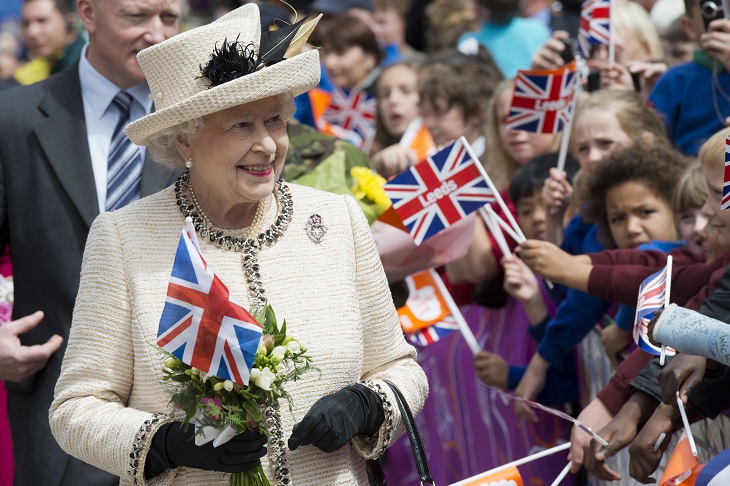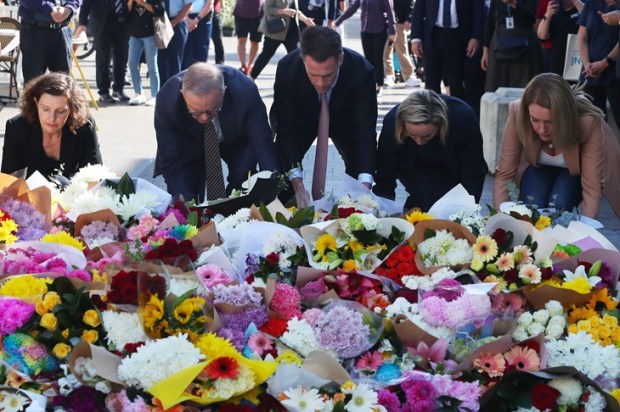Prince Philip, it was said, had one duty above all others – to never let the Queen down.
Her Majesty, who has sadly passed away aged 96, aspired to never let people down.
It’s not well known that on the same morning of Michael Fagan’s 1982 Palace break-in – where Fagan threatened to slit his wrists with an ashtray at the foot of the Queen’s bed – she insisted the 11am investiture ceremony (literally only hours later ) still proceed.
No one would be left disappointed on their big day.
Indeed, it is a small but fitting example of both duty and service – the key qualities stitching the Queen’s 70 years of public devotion together.
Looking back, the Queen’s time will be known for not only its length but its depth — 14 US Presidents, 15 UK Prime Ministers, countless more heads of state and public officials, and serving as monarch to 14 countries as head of the Commonwealth’s 54 nations.
It is unlikely any of us, even our children and theirs, will see anything as enduring.
Another theme to Her Majesty’s life was in responding to change.
On face value, constitutional monarchies are often accused of staying stuck in time, immune from alteration or modern gyrations.
Yet what I always return to is the example of the Queen and the constitutional monarchy itself constantly evolving and sensibly responding to expectations.
How many of us could anticipate Her Majesty playing a Bond Girl at the 2012 London Games, as well as appearing in front of Paddington Bear with a marmalade sandwich at Platinum Jubilee celebrations?
Queen Elizabeth II meeting Paddington, just made me tear up… lovely tribute. RIP 👑 #QueenElizabeth #QueenElizabethII pic.twitter.com/FylrWzV0vK
— Andy Signore 🌹🚀 (@andysignore) September 8, 2022
I think Queen Elizabeth had a great sense of humour and she was a good sport. She proved this when she made her grand entrance to the London 2012 Olympics alongside Daniel Craig as James Bond.
This was absolutely magnificent.
#RIPQueenElizabeth #QueenElizabeth #JamesBond pic.twitter.com/T9gKTcQzdU— The Sting (@TSting18) September 8, 2022
The less forgiving among us would see this as simply ‘good PR’.
But it did show hints of self-deprecation and humility – essential ingredients for any serious institutional longevity.
The Queen – as a representative of an institution over 800 years old – had the modern mix right, not just in gauging public mood but in getting the functional and political issues correct over time.
Australians familiar with the 1975 dismissal of Prime Minister Gough Whitlam, where The Queen simply stayed out of Australia’s political affairs, spoke to this.
Her 1992 decision to pay UK domestic income tax, despite going against her father George VI, and even UK Prime Minister John Major’s wishes, was another example.
Indeed, in looking at the Queen’s public messages over the years one sees a constant acknowledgement of change and keeping consistent with public expectations.
This was led by moral foresight and an earthly common sense to do what is right.
In saying this, the institution of sovereign is like no other leadership position – it comes with great responsibility and requires intense discipline. But it does not require pandering in the way that so much of modern politics and political leadership has become.
The Queen’s leadership reveals to us a great cascading lesson that spills over into our political institutions and across borders – politics should remain separate from the crown. This is especially important in a world clamouring to dispose of monarchs at the expense of republics.
Finally, the Queen’s countless messages and broadcasts reveal a simple but constant gratitude.
Indeed, Her Majesty’s Jubilee message was not about her but about people, and overwhelmingly steered toward thanks and gratitude over an excessive acceptance of praise.
It is very unlikely we will see this sort of service and such a grand, towering figure in our time.
We are honoured to live and share in this period of history.
Vale Queen Elizabeth II – a Queen of duty, service, and change.
Got something to add? Join the discussion and comment below.
Get 10 issues for just $10
Subscribe to The Spectator Australia today for the next 10 magazine issues, plus full online access, for just $10.


























Comments
Don't miss out
Join the conversation with other Spectator Australia readers. Subscribe to leave a comment.
SUBSCRIBEAlready a subscriber? Log in